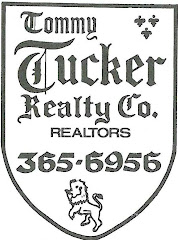If you own a rental property, big or small, the City of Cedar Rapids requires you use a Crime Free Lease Agreement or Addendum, that you become licenced locally, and you register all rental rooms, houses and apartments. [DOC] Crime Free Lease Addendum / Agreement - CITY OF CEDAR RAPIDS
[DOC] Crime Free Lease Addendum / Agreement - CITY OF CEDAR RAPIDS
File Format: Microsoft Word - View as HTML
CITY OF CEDAR RAPIDS. Crime Free Lease Addendum / Agreement ... or any breach of the lease agreement that otherwise jeopardizes the health, safety, ...
Here is a link to the new Chapter 29 approved by the City of Cedar Rapids on Tuesday, July 20, 2010. The new ordinance will become official on Monday, July 19, according to a phone call with Housing Services Department.
Ordinance for Chapter 29 regarding Licensed Registration ...
File Format: PDF/Adobe Acrobat - View as HTML
BE IT ORDAINED BY THE CITY COUNCIL OF THE CITY OF CEDAR RAPIDS, IOWA, as follows: Section 1. Chapter 29 of the Cedar Rapids Municipal Code is hereby ...
Landlords Now on The Hook to Help Clean Up Cedar Rapids Neighborhoods - KCRG
At the Tuesday evening council meeting, Walter Skovronski, president of Landlords of Davenport, told the Cedar Rapids council that tenant background checks ...
Landlords asked, Cedar Rapids Police Department looking for ... - Eastern Iowa News
The Cedar Rapids Police Department on Wednesday said it is working ... The city of Davenport also uses a crime-free lease addendum and most ...
Tommy Tucker Realty Co. has been using a different Crime Free Lease Addendum, on a voluntary basis, over the past 8-9 years for many of our clients.
Tommy Tucker Realty Co. was founded in 1958 and has specialized in property management services for various clients over the years. We would be happy to visit with people who have questions about the new Chapter 29 in Cedar Rapids or other housing and/or real estate questions ...
- Sales
- Purchasing
- Property Management
- Leasing
- Business Opportunity
- Like-Kind Exchange: 1031
- Chapter 22 questions?
- Chapter 29 questions?
- Chapter 69 questions?
The City of Cedar Rapids just passed the new Chapter 29 on Tuesday night at the City Council meeting. Later this year, we expect new Chapter 22 and Chapter 69 ordinances to be reviewed and enacted as well. As Realtors, we believe...
The Preamble of the Code of Ethics and Standards of Practice of the NATIONAL ASSOCIATION OF REALTORS ® ...ttrcoPreamble
Under all is the land. Upon its wise utilization and widely allocated
ownership depend the survival and growth of free institutions and of our
civilization. REALTORS® should recognize that the interests of the nation and
its citizens require the highest and best use of the land and the widest
distribution of land ownership. They require the creation of adequate
housing,the building of functioning cities, the development of productive
industries and farms, and the preservation of a healthful environment.
Such interests impose obligations beyond those of ordinary commerce.
They impose grave social responsibility and a patriotic duty to which
REALTORS®should dedicate themselves, and for which they should be diligent in
preparing themselves. REALTORS®, therefore, are zealous to maintain and improve the standards of their calling and share with their fellow REALTORS® a common responsibility for its integrity and honor...











